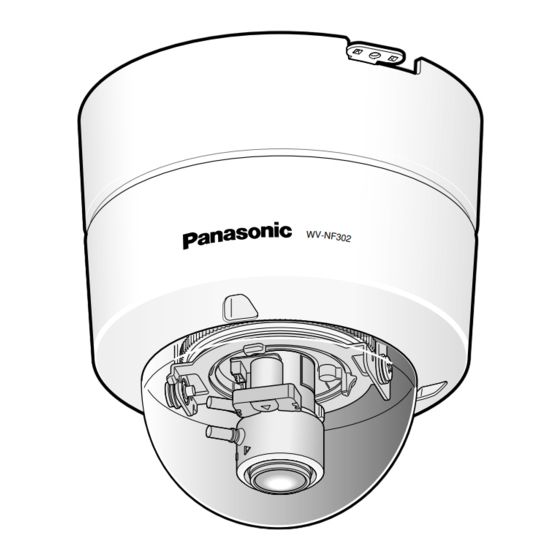g! C
D
ONFIGURATION
ETAILS
The following table provides settings used in the g! Configurator when connecting to a camera. Please refer to the Configurator Reference Guide for more details.
In the table below:
"<Select>"
o
"<User Defined>", etc.
o
"<Auto Detect>", etc.
o
Devices
Variable Name
Communication Device
N/A (See Note 1)
Video Cameras/Sources
Name
Device Type
IP Address
Port
UserName
Password
<<<Wait a moment after adding the IP address and saving, and the Panasonic i-pro cameras should autodetect most settings. Below options provided for reference only. >>>
See Note 3
Enable DVR
Low-Res Panning
Has Pan/Tilt
Has Zoom
Has Presets
Has Audio
Has Motion Detect
Flip Image 180
Hide Resolution Control
Hide Full Screen Control
Default Resolution
Goto Preset When Idle
Record Resolution
Record Mode
Record Threshold
Event-Map Motion Trigger <Select> (Default: Disabled)
Trigger Value
Notes:
1. No Communication Device is needed: just add Video Cameras.
2. By default, set the first camera to 192.168.0.80, the second to 192.168.0.81, and so on.
3. Not all options may be available, as some options only open up based on the selection of other options.
Select the appropriate item from the list (or drop-down) in the Configurator.
Type in the desired name for the item.
The system will auto detect this variable.
Setting
N/A (See Note 1)
<User Defined>
Panasonic Pro Series
<User Defined> (Default: 192.168.0.80) (See Note 2)
80
<User Defined> (Default: admin)
<User Defined> (Default: 12345)
<<DVR Options should still be selected as usual.>>>
<Select> (Default:<No>)
<Select> (Default: <No>)
<Select> (Default:<No>)
<Select> (Default:<No>)
<Select> (Default:<No>)
<Select> (Default:<No>)
<Select> (Default:<No>)
<Select> (Default: <No>)
<Select> (Default: <No>)
<Select> (Default: <No>)
<Select> (Default: <Auto>)
<Select> (Default: <None>)
<Select> (Default: <Don't Change>)
<Select> (Default: Auto (Medium Sensitivty))
<Select> (Default: Disabled)
<Select> (Default: 50%)
7 of 8
Comments
Typically left at 80. Cameras do not need to be set to different listening ports for g!
Set to YES to enable the built in DVR function. See the DVR Integration Note for full details.
Set to YES to have camera set the resolution to LOW prior to any camera Panning.
Set to YES if Camera has Pan/Tilt functionality.
Set to YES if Camera has Optical Zoom.
Set to YES if the camera has position/zoom presets.
Set to YES if the camera has Audio.
Set to YES if the camera supports Motion Detection.
Set to YES if camera is inverted.
Set to YES to hide the Resolution control buttons from the Viewer.
Set to YES to hide the Full Screen button from the Viewer.
Set to desired Default Resolution: the camera will always load at this setting when viewed.
Choose the desired preset to have the camera return to when it is not open in any Viewer.
Don't Change will default to last active resolution, or set a specific resolution for recording.
Select the desired sensitivity level for the Auto motion mode, or choose fixed value.
Record Mode must be set to "Fixed Threshold" to enable. Select the desired motion %
Set to enable Motion Detection as a Event Map trigger. This is not required for typical DVR
function, and is only needed if you wish to use the Motion % as a Event trigger.
Set the level for the Event Map motion detection trigger. Lower is more sensitive.

